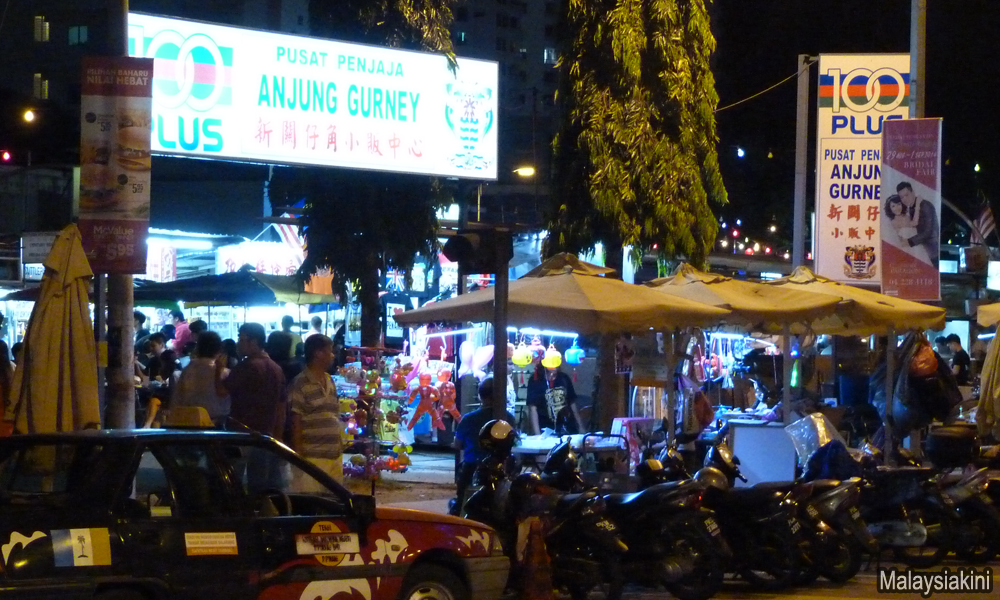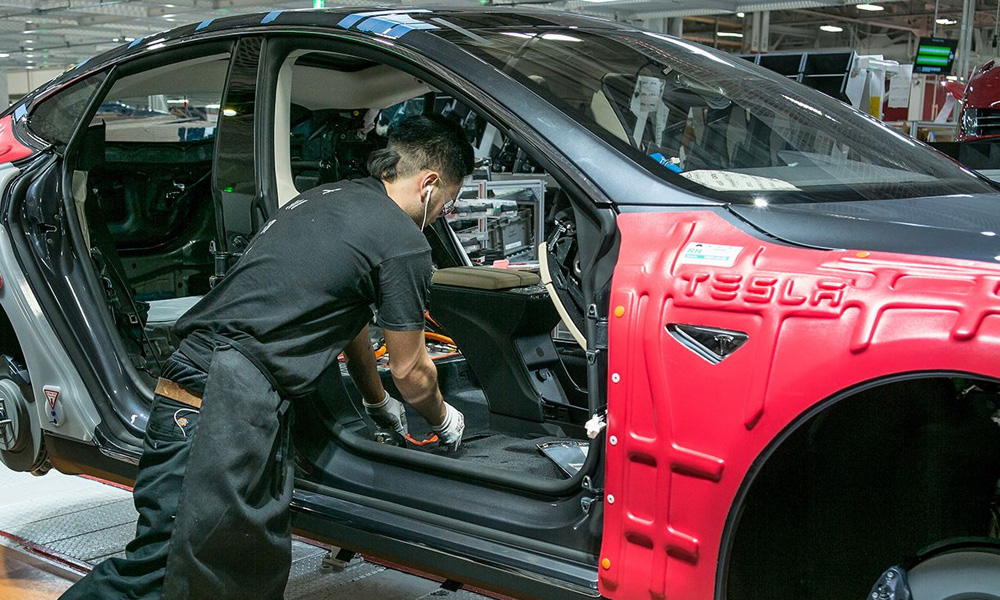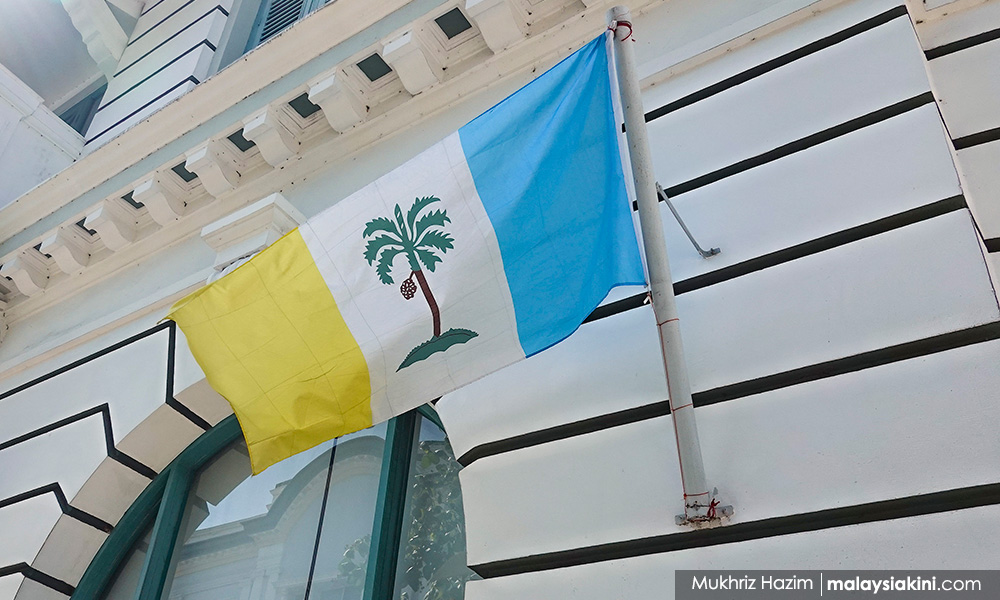ADUN SPEAKS | There seems to be no end to controversial news for Penang. The once-famous Penang hawkers are fighting for survival. The disputes over the George Town ferry and the Sungai Muda water supply, as well as the lack of Unesco recognition for Penang hawker culture, have been dispiriting.
To top it all off, the Sony production plant closed recently, after 36 years in Bayan Lepas, causing a loss of 3,000 jobs. Some businesspersons and corporations may be wondering: why invest in Penang? To them, I say, why not?
There is a Malay saying, jika takut dilambung ombak, jangan berumah di tepi pantai. If one is afraid of the waves, do not dwell by the sea. Since its roots as a trading port famous for its food, petty traders and seafarers, Penang has never been afraid of waves of disruption.
Be it industrial globalisation in the 70s and 80s or the dotcom boom of the 90s and 2000s, Penang has always come out on top.
Here’s why Penang will surf, not drown in the Covid-19 disruption of digital, trade and values.
Digital transformation
Covid-19 has accelerated the digital transformation of Penang’s economy. Malaysia’s e-commerce market registered 24.7 percent growth in 2020 (GlobalData). Some 48 percent of Malaysia’s digital consumers switched to purchasing mostly online in the past year, according to Facebook and Bain & Company.
Meanwhile, 64 percent of Malaysian small and medium enterprises (SMEs) are now looking at digital transformation, compared to 33 percent last year (Cisco).
Numbers aside, visit any humble George Town hawker and you will realise Penang is at the epicentre of digital transformation.

Global trade
Covid-19 has restructured global trade flows. The trend in favour of Asia-Asia trade will continue to accelerate. The Boston Consulting Group has predicted that Southeast Asia will be one of the strongest gainers, as US-China trade and EU-China trade falls.
In the medium to long-term, the potential “decoupling” of the US and China technology sectors - Huawei and Tiktok were the first shots fired - and the nascent Regional Comprehensive Economic Partnership (RCEP) will create new opportunities and risks for Penang.
Sustainability values
Covid-19 has reinvigorated interest in resilience and sustainability values. Lower cost is no longer the only mantra for global economics.
For example, globally, capital expenditure for energy projects fell by 18-20 percent but renewable energy projects were least affected, according to a study by Linklaters.
Penang may not win the race to the lowest cost against powerhouses like Vietnam or fresh entrants like Indonesia or the Philippines. Instead, Penang can win in new sectors driven by resilience and sustainability concerns, such as green technology, defence, rail, medical devices and foodtech.
No one could have predicted the pandemic or its impacts. But Chief Minister Chow Kon Yeow articulated in 2018 the bold and unique vision that is Penang 2030. If anything, Penang 2030 is even more relevant and critical post-Covid-19.
Penang 2030 is about making Penang a family-focused, green and smart state. It repeats the call for Penang manufacturers to move up the value chain to original design manufacturing (ODM) and thereon to original brand manufacturing (OBM).
Being an original equipment manufacturer (OEM) of electrical and electronic (E&E) products is no longer resilient or sustainable. This is no longer a cliché. It is a cardiac alarm.
It is to innovate or die. Some 80 percent of the global economic profit goes to the top 10 percent of companies – the “superstars” – that spend two to three times more on research and development than the median (McKinsey).
In fact, innovation is its own brand. Dyson and Tesla are so innovative that their marketing comes mostly from viral (read: free) word-of-mouth. The superstar of superstars, Apple, is all OD and OB without any internal M.
Penang had a 20-year head-start on Shenzhen, China. Penang’s E&E journey started in 1972 whereas Shenzhen took off in the early 1990s. But, Shenzhen is now far ahead with global brands such as Huawei and Xiaomi.
Yes, Shenzhen, like broader China, may be a unique economic miracle. But the fact that relative late-bloomers like Indonesia are attracting the likes of Tesla and Amazon should be a wake-up call for Penang.

Of course, not everyone can be an Apple, Dyson or Tesla. But Covid-19-induced shifts in trade and values mean more niche or long-tail opportunities in verticals such as the Internet-of-Things (IoT), defence, aerospace and rail.
Far from being ventures into uncharted territory, these new growth areas have deep synergies with Penang’s traditional E&E core. We need our “local champions” to grow into global “hidden champions” in the vein of the German Mittelstand. Successful examples are Vitrox and Sim Leisure (Escape Park).
Penang 2030 is also about a creative ecosystem. If Malaysia is to be the “Heart of Digital Asean” as announced by the Malaysia Digital Economy Corporation (MDEC) in October, Penang will be a key ventricle, pumping out start-ups to expand throughout the region.
Penang should leverage its “second city” advantages to be a “start-up city”, becoming the Bangalore to Kuala Lumpur’s Delhi, Barcelona to Madrid, Fukuoka to Tokyo.
Beyond high tech, Penang 2030 also reminds us about the other 99 percent of businesses. They fall under the SME category with a total economic value of RM30 billion and providing 400,000 jobs.
While these businesses may not be hyper-scale like tech companies or have an IPO at jaw-dropping multiples, we should not forget that they are a vital part of our economy.
Our business culture celebrates the tech start-up founder. Why not also the café proprietor who provides morning coffee to the start-up? Why not also the nasi kandar hawker who fuels all-night coding sprints?
This is not just about a vibrant but balanced business ecosystem but also about the “humane economy” as envisioned by PKR president Anwar Ibrahim.
To be sure, challenges remain. Despite Penangite success stories like Tan Hock Eng, CEO of Broadcom and best-paid US CEO in 2017, Penang’s deep talent pool has not been fully tapped.
Penang is not even listed in the Global Top 30 Start-up Ecosystems by Startup Genome, whereas Kuala Lumpur is listed as the 11th emerging ecosystem.
Penang may have enjoyed RM10.6 billion in approved manufacturing capital investment in the first nine months of 2020 and RM16.9 billion in 2019. But, the figure for 2018 was only RM5.7 billion.
The fact is, the bulk of such investment remains foreign direct investment, which is subject to uncertain ebbs and flows. Thus, Penang must not be complacent.
In responding to the promise and perils of Covid-19 for business and industry, the state government matters. The state government is often dismissed for its lack of financial firepower and its weak powers under our Federal Constitution. But I believe all it takes is a difference in approach.
The Penang state government can be closer, faster and more experimental.

Closer connection
The world is not flat, and distance still matters. Tele-conferencing and remote work may have dramatically increased post-Covid-19, but innovation and creativity still depend on the very often accidental connections and “lightbulb moments” made when people come together.
Apart from hard infrastructure, the state government should also build “soft” culture. After all, an entrepreneurial community cannot easily be built from Kuala Lumpur 360km away.
Act faster
As the pace of business disruption accelerates, the state government must also keep up. This is even more critical if the federal government is at risk of paralysis and excessive bureaucracy.
Chow set the tone by promptly outlining the “Penang Next Normal Strategies” within a month of the first movement control order.
It is not just businesses that can be more agile in delivering products and services, the state government can too.
Bold experimentation
The beauty of our federal system is that it allows states to experiment with different approaches, which, if successful, can be replicated across Malaysia.
The Penang state government can be bold to try unconventional initiatives like the International Inspirasi Khatijah 2020 virtual exhibition. The World Congress for Information Technology is another such initiative, albeit unfortunately postponed to 2022 due to the Covid-19 pandemic.
In an era of unprecedented change, the age of federal-government-knows-best is over.
All in all, digitisation is not enough. Investment is not enough. Development is not enough. Skills are not enough. Ask any businessperson and he will tell you none of these - alone - make a successful business. Entrepreneurship is about the whole ecosystem.
Why should entrepreneurship policy be only formulated at the national level? Penang needs an all-encompassing trade, industry and entrepreneurship policy at the state and local levels, too. Such a policy has two aims.
Firstly, it will relentlessly focus execution towards achieving Penang 2030. Secondly, it will seek to answer the question - what is next for Penang’s business and industry in 50 years? This will be the focus of my term as state executive councillor for trade, industry and entrepreneur development.
God willing, Penang will lead and inspire the nation.
HALIM HUSSAIN is Batu Maung assemblyperson and Penang executive councillor for trade, industry and entrepreneur development. - Mkini
The views expressed here are those of the author/contributor and do not necessarily represent the views of MMKtT.




No comments:
Post a Comment
Note: Only a member of this blog may post a comment.